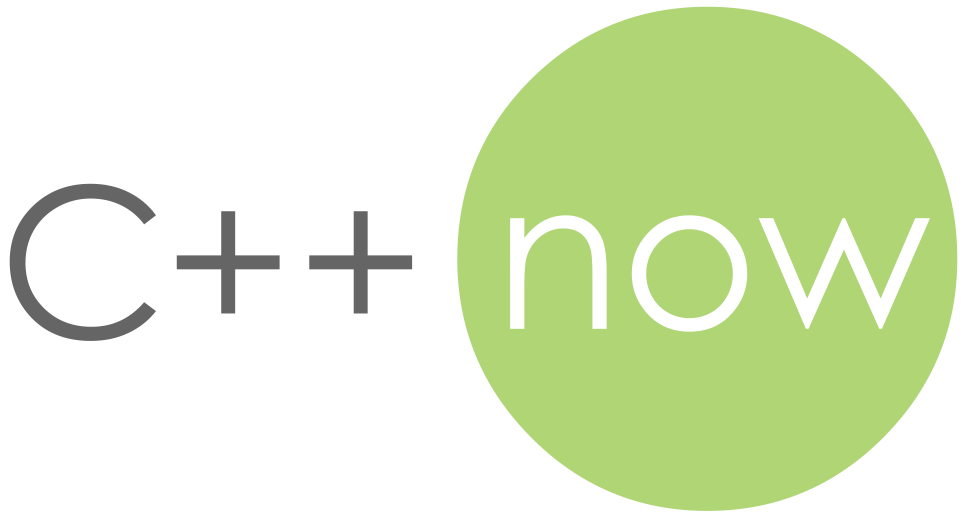Variadic and Variable Templates in C++14 - Peter Sommerlad - Meeting C++ 2015
A new video from Meeting C++ 2015:
Variadic and Variable Templates in C++14
by Peter Sommerlad
March 11-13, Online
March 16-18, Madrid, Spain
March 23-28, Croydon, London, UK
March 30, Kortrijk, Belgium
May 4-8, Aspen, CO, USA
May 4-8, Toronto, Canada
June 8 to 13, Brno, Czechia
June 17-20, Folkestone, UK
September 12-18, Aurora, CO, USA
November 6-8, Berlin, Germany
November 16-21, Búzios, Rio De Janeiro, Brazil
By Meeting C++ | Jan 13, 2016 03:25 AM | Tags: intermediate c++14 basics advanced
A new video from Meeting C++ 2015:
Variadic and Variable Templates in C++14
by Peter Sommerlad
By Meeting C++ | Jan 12, 2016 06:40 AM | Tags: performance intermediate advanced
A new video from Meeting C++ 2015
Utilize your CPU power
by Mario Mulansky
By Adrien Hamelin | Jan 11, 2016 08:23 AM | Tags: intermediate c++14
 Nice use of modern C++:
Nice use of modern C++:
Writing modern C++ servers using Wangle
by James Perry
From the article:
I mentioned in my previous post that I was able to build a prototype database engine within one day using Facebook’s Wangle so this post explains how I managed that. By the end of this post, you will be able to write a high-performance C++ server using Wangle. This post also serves as a tutorial which will be merged into Wangle’s README.md.
By Adrien Hamelin | Jan 11, 2016 08:21 AM | Tags: community
The title says all:
Android++ is now open source
From the article:
Android++ is a freely distributed extension and associated MSBuild scripts designed to enable Android application development within Visual Studio. Primarily for NDK based C/C++ applications, it also incorporates customisable deployment, resource management, and integrated Java source compilation.
By Meeting C++ | Jan 11, 2016 07:29 AM | Tags: intermediate c++14 advanced
The first talk is published on youtube from Meeting C++ 2015:
Migration of C++ Libraries to C++14
by Joel Falcou
By Bartosz Bielecki | Jan 11, 2016 07:18 AM | Tags: community c++14 c++11 boost basics
The online compiler Wandbox offers new functionality.
Wandbox
It offers now the following features:
- support for newest (HEAD) versions of GCC and Clang
- support for various versions of Boost (from 1.47 to 1.60)
- support for emacs/vim key bindings
- permalinking your code snippets
By robwirving | Jan 9, 2016 12:59 PM | Tags: None
Episode 40 of CppCast the only podcast for C++ developers by C++ developers. In this episode Rob and Jason are joined by Dr. Greg Law to discuss reverse debugging with Undo Software.
CppCast Episode 40: UndoDB and Live Recorder with Greg Law
by Rob Irving and Jason Turner
About the interviewee:
Dr. Greg Law is co-founder and CEO at Undo Software. He has spent nearly 20 years writing systems-level code, including novel kernel designs and networking architectures in academia and at a variety of start-ups. Greg finds it particularly rewarding to turn innovative software technology into “real” business development. He still gets to write some code, although sadly most of his coding these days is done on aeroplanes. Greg lives in Cambridge, England with his wife and two children.
By Adrien Hamelin | Jan 6, 2016 07:56 AM | Tags: c++11 basics
Explications of the noexcept keyword:
Modern C++ Features – keyword `noexcept`
by Arne Mertz
From the article:
I have written about handling exceptions some time ago, and about the levels of exception safety last week. What I have not touched yet are exception specifications. I will catch up on those with this post.
C++98 had the possibility to denote the types of exceptions that could be thrown from a given function by using
throw(<exception list>). In theory, the runtime had to check if any exception emitted by the function was indeed in that list or derived from one of the types in the list. If it wasn’t, the handlerstd::unexpectedwould be called...
By Meeting C++ | Jan 6, 2016 06:56 AM | Tags: user group community
The monthly update of C++ User Group Meetings at Meeting C++:
C++ User Group Meetings in January 2016
by Jens Weller
From the article:
The monthly overview on upcoming C++ User Group meetings! There is a new C++ User Group in Iasi, Romania and a lot of C++ User Groups which are meeting in January!
Maybe you want to start a C++ User Group in 2016? Also feel free to contact me on the topic!
By Jon Kalb | Jan 5, 2016 12:19 AM | Tags: community c++14 boost
C++Now 2016 will be held in Aspen, May 9–14, 2016.
From the invitation:
Building upon the resounding success of previous BoostCon and C++Now conferences, C++Now 2016 will present leading speakers from the whole C++ community.
The C++Now Conference is dedicated to discussion and education about C++, an open and free language and standard. Our Conference will focus on discussion and education about open source software usage and developments in the C++ developer and user community. To reflect the breadth of the C++ and Boost communities, the conference includes sessions aimed at three constituencies: C++ and Boost end-users, hard-core library and tool developers, and researchers pushing the boundaries of computation. The program fosters interaction and engagement within and across those groups, with an emphasis on discussion.
As a multi-paradigm language, C++ is a melting pot with the most compelling ideas from other programming communities blending in powerful ways. Historically, some of the most popular sessions at C++Now have highlighted these concepts, from DSLs to functional programming to transactional memory and more. Bring your C#, Python, Ruby or Haskell influences to bear in an environment that will broaden their exposure.At C++Now 2016 we would like to focus on the now established C++11 and C++14 standards and how those standards shape C++’s future. However, by no means is this intended to restrict the topics of proposals we hope to see. Any other topic related to C++, as described below, is suitable for submission.
This year's window for submitting is shorter than normal. Submissions must be in by January 29th, less than four weeks away.